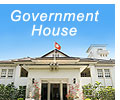
|
The first two monthsUpholding the belief of working for the betterment of Hong Kong with one heart and one vision, I, together with colleagues in the political team and the civil service, have put forward a series of major policies to address livelihood issues in the first two months of this new Administration. With the determination and concerted efforts of everyone, I am taking steps to carry out my election pledges and introduce changes to Hong Kong while preserving stability. On July 16, I announced the following measures at the Legislative Council meeting:
In the six weeks after the above five policy measures were announced, we further introduced the following key initiatives to improve people's livelihood:
Of these new measures, some seek to fulfil election pledges I made earlier, while others respond to the suggestions and views collected when my governing team and I reached out to various sectors in district visits. These are all appropriately proactive measures which seeks changes whilst maintaining overall stability. To better address the pressing needs of the public, we will put forward policy initiatives once they are ready. In response to the recent disputes over moral and national education, I would like to make clear the Government's stance. I understand that some people are very much concerned about the possibility of the subject of moral and national education being turning into a tool for brainwashing. We have reiterated time and again that this will never be the case. The Government does not have any intention of introducing this subject for the purpose of brainwashing. To ease worries, we have set up the Committee on the Implementation of Moral and National Education. The day before yesterday, we even expanded the terms of reference of the Committee to allow discussions on all areas. We also guarantee that schools can have discretion on the choice of teaching materials and the Government will issue only those reference materials endorsed by the Committee. Furthermore, we will not coerce schools into launching the curriculum immediately. Instead, the roll-out period will cover a span of three years. Operators and schools may decide on the way and pace of implementation they consider most appropriate after accumulating experience. It is our earnest wish that those who have views to share on this matter would nominate representatives to join our Committee so that multiparty discussions can be held. Thanks to colleagues in the leadership team and the civil service, the new-term Government has been able to take forward a series of new initiatives in just two months. As I always say, our civil service is a team that stands accountable and displays excellence and professionalism. In addressing the pressing needs of the public, our civil service colleagues have to cope with additional workload. For the Administration as a whole, nothing is more encouraging than seeing our work bear fruits and win the recognition or our people.September 5, 2012
|
|||||||||||||||||
|


